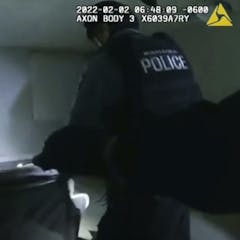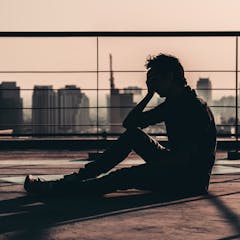
Articles on Police
Displaying 101 - 120 of 456 articles

Suggesting jail or prison is appealing because it is tangible and the process is familiar, but we must ask what is a better, effective and safe way to de-escalate potentially violent situations.

Police in Ottawa and other Canadian cities have been community-focused and protected the enshrined right to protest amid the ‘freedom convoy,’ but now must stand up for law and order for everyone.

As the “freedom convoy” and occupation of Ottawa drags on, the potential for a violent stand-off between protestors and police increases, which in turn decreases the chances of a peaceful resolution.

The death of a 22-year-old man in a ‘no-knock’ raid in Minneapolis has sparked fresh concern over the associated risk to the public and police alike.

Canadian police have been sued for failure to protect victims of crime in the past. Is the situation in Ottawa different?

Our results suggest police location groups and pages on Facebook are helping drivers avoid detection for drug driving - with potentially fatal consequences.

The continued reliance on outdated indicators of police performance reinforce conventional ideas of police sustainability rather than align with the concerns of “defund the police” advocates.

In the past year, black people were seven times more likely to be stopped and searched than white people.

Police officers are tasked with summarising accounts of violent incidents. And the language they use is extremely important.

Here’s what the Australian Federal Police’s new campaign gets wrong.

Minneapolis residents voted 56% to 44% against an amendment that would have transformed the city’s police. The reasons they did so are complicated, an expert writes.

In recent years, Indigenous land defenders have lived under increasing police and state surveillance while far-right, conspiratorial movements have not.

Mass data collection and surveillance have become ubiquitous. For marginalized communities, the stakes of having their privacy violated are high.

Once analysts gain access to our private data, they can use that information to influence and alter our behaviour and choices. If you’re marginalized in some way, the consequences are worse.

The terrible murder of a British woman is a clear example of how our behaviour at work can be linked to violence against women.

Police don’t have the resources to check vaccine certificates at public venues – and it could also erode public trust in the institution.

Research found that police officers killed more than 30,000 people from 1980 to 2018 – 17,000 more than official federal data suggests.

FBI statistics recorded a 30% rise in homicides in 2020. A criminologist helps break down what was behind the spike.

Understanding what drives conflict, and tension, is the starting point for developing paths to peace.

Plans have been made for the AI-based program to begin trials before the year ends. But it raises serious questions about the role of police in preventing domestic violence.
